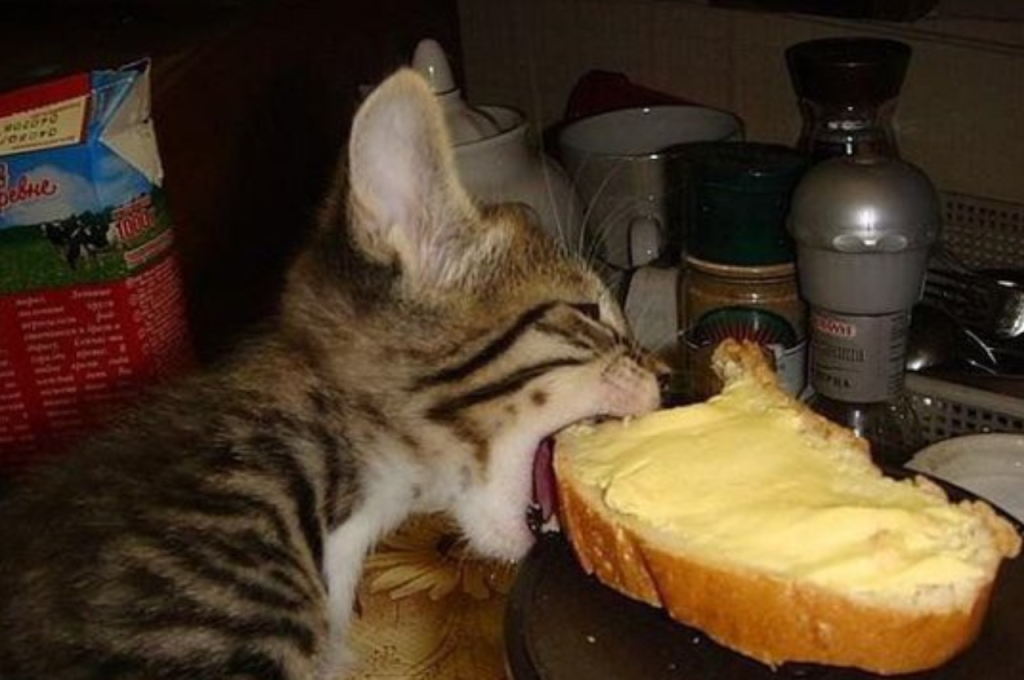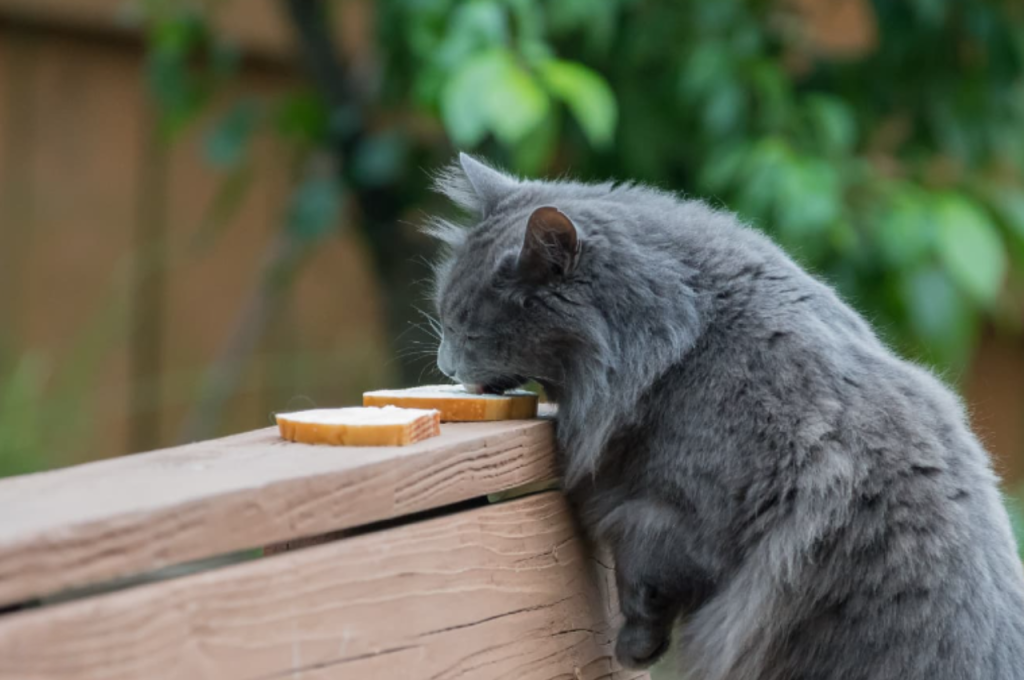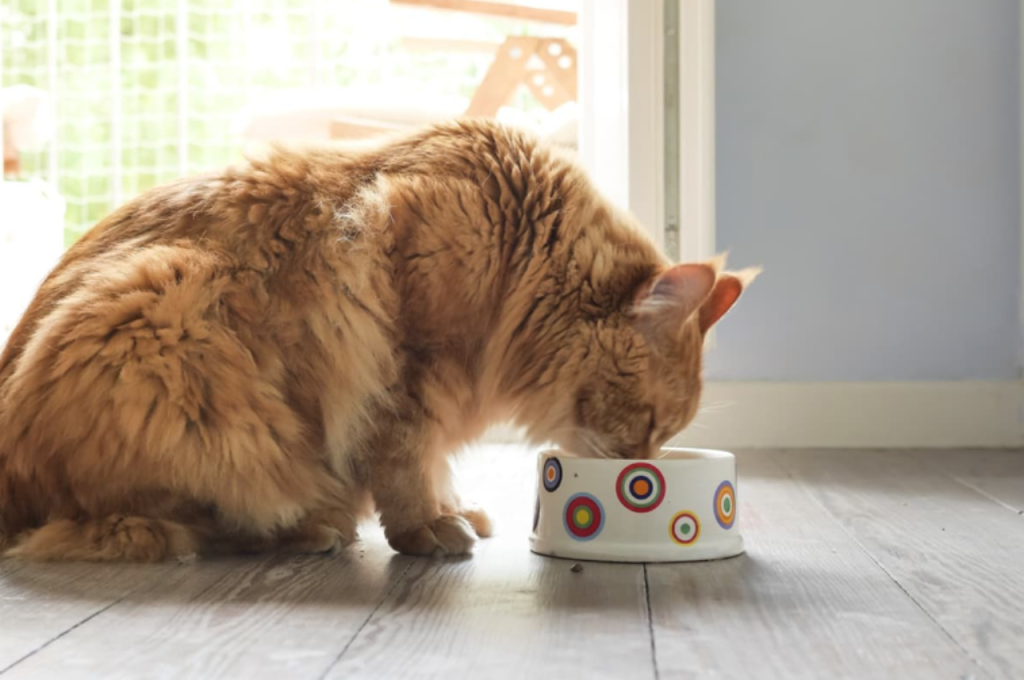A cat should not eat butter as it can cause gastrointestinal issues and obesity. Butter is not suitable for cats as it can lead to digestive problems and weight gain due to its high fat content.
Cats have evolved to eat a diet primarily consisting of meat and may have difficulty digesting dairy products like butter. Feeding cats butter can result in diarrhea, vomiting, and even pancreatitis. Additionally, the excess fat in butter can lead to obesity, which can contribute to various health issues in cats such as diabetes and joint problems.
It is best to avoid giving butter to cats and provide them with a balanced diet that meets their nutritional needs.
The Role of Butter in A Cat’s Diet
When it comes to our feline friends, ensuring they have a balanced diet is crucial for their overall health and well-being. While their primary source of nutrition should come from cat food formulated specifically for their dietary needs, it’s natural for us to wonder if certain human foods can be safely incorporated into their diet. One such food is butter. In this article, we will explore the composition of butter, its impact on a cat’s digestive system, and whether it should be included in their diet.

Butter Composition
Butter is typically made from the milk fat of cows or other animals. It is rich in fat and contains trace amounts of proteins, carbohydrates, vitamins, and minerals. The primary nutrient found in butter is fat, which can provide a source of energy for cats.
However, it is important to note that cats are obligate carnivores, which means their bodies are designed to thrive on a diet that is high in animal protein and low in carbohydrates. While fats are essential in a cat’s diet, it is crucial to provide them in the form of animal-based fats rather than relying on sources like butter.
Impact on Feline Digestive System
When a cat consumes butter, it can have several effects on their digestive system. While small amounts of butter are unlikely to cause immediate harm, it is important to consider the long-term impact. Cats lack the necessary enzymes to break down lactose, the sugar present in milk and dairy products. This can lead to digestive upset, including symptoms such as diarrhea, vomiting, and abdominal discomfort.
Beyond the potential digestive issues, the high fat content in butter can pose a risk to a cat’s overall health. Excessive fat consumption can contribute to weight gain and obesity, which can lead to a range of health issues such as diabetes, heart disease, and joint problems. Additionally, the high-calorie content of butter can easily disrupt the caloric balance in a cat’s diet, leading to an unbalanced nutrient intake.
Potential Risks of Feeding Butter to Cats
Eating butter can be an enjoyable treat for humans, but when it comes to cats, there are potential risks and concerns to consider. While small amounts of butter may not harm your feline friend, moderation is key to avoid potential digestive upset and the risk of obesity. Let’s take a closer look at these risks in more detail:

Digestive Upset
Feeding butter to your cat can lead to digestive upset. Cats have a unique digestive system that is specifically designed for a high-protein diet. Butter is a high-fat food that can be difficult for cats to digest, causing diarrhea, stomach discomfort, and vomiting. Additionally, butter contains lactose, which many cats are intolerant to, leading to further digestive issues. If you notice any digestive upset after your cat consumes butter, it’s best to avoid this indulgence in the future.
Obesity Risk
Butter is rich in fat and calories, making it a potential contributor to obesity in cats. Obesity is a serious health concern that can lead to various health problems, such as diabetes, heart disease, and joint issues. Just a small amount of butter can quickly add up in terms of calories for a cat, especially since their calorie intake should be carefully controlled. If you regularly feed your cat butter or other high-fat foods, it’s important to consider the potential for weight gain and adjust their diet accordingly.
Healthy Alternatives to Butter for Cats
When it comes to considering healthy alternatives to butter for cats, it’s essential to prioritize their well-being. While butter can be appealing to cats due to its rich flavor and creamy texture, it’s not necessarily the best option for their diet. However, there are several safe and nutritious alternatives that can provide similar taste and nutritional benefits for your feline friend.
Recommended Feline Diet
Cats require a well-balanced diet that includes high-quality protein, essential fatty acids, vitamins, and minerals. It’s important to provide them with a diet that is specifically formulated for cats to support their overall health and well-being. This includes foods that are rich in protein and low in carbohydrates, while also being mindful of portion control to prevent obesity.
Safe and Nutritious Treats
Offering your cat safe and nutritious treats can be a great way to provide them with a tasty alternative to butter. Opt for treats that are specifically designed for cats and are made from wholesome ingredients such as chicken, fish, or liver. These treats can satisfy your cat’s cravings while also providing them with essential nutrients.
Understanding A Cat’s Nutritional Needs
Providing proper nutrition is essential for maintaining the health and well-being of your feline companion. Cats have unique dietary requirements that differ from other animals, and understanding these needs is crucial for ensuring they receive the nutrients necessary for a healthy life. In this guide, we’ll explore the key components of a cat’s nutritional needs and provide insights to help you make informed decisions about your cat’s diet.
Essential Nutrients for Cats
Cats require essential nutrients such as protein, fats, vitamins, and minerals for their overall health.
- Protein: Vital for muscle growth and maintenance
- Fats: Provide energy and support skin and coat health
- Vitamins and minerals: Essential for various body functions
Balanced Cat Diet
A balanced diet for cats includes a mix of quality protein sources, fats, and essential nutrients.

- Quality protein: From sources like poultry, fish, or meat
- Healthy fats: Found in fish oil or chicken fat
- Vitamins and minerals: Ensure overall well-being
Cats also need proper hydration through fresh water to support their digestive and urinary health.
Conclusion
While small amounts of butter may not harm your cat, it should be given sparingly. It’s important to consider your cat’s specific dietary needs. Always consult with your vet before introducing any new foods to your cat’s diet.
Remember to prioritize your cat’s health and well-being above all else.
